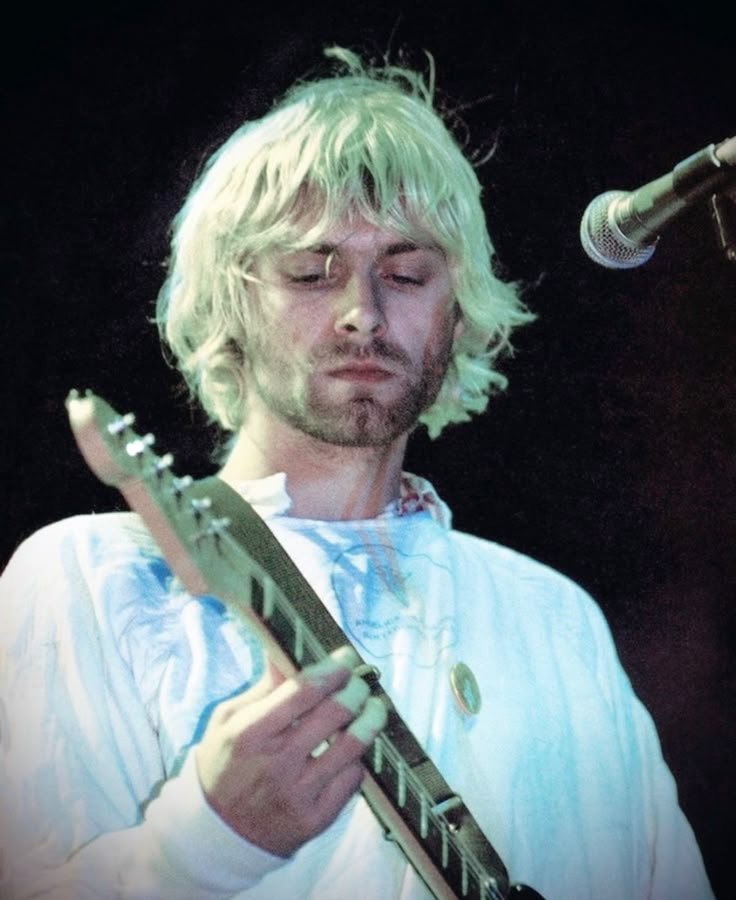Some bands pop, some simply fizzle, and others leave a crater behind. It’s no secret that Kurt Cobain imparted an unparalleled influence on the music industry.
As the driving force behind one of the most iconic rock bands of music, Nirvana and Cobain’s mark on popular culture continues to resonate to this day. They not only proliferated grunge to the masses, but created a whole new movement of music in the process.
What’s perhaps most profound is that Cobain pulled this off while keeping things entirely authentic. His introspective lyricism, inherent vulnerability and unapologetic authenticity continue to live on within today’s musicianship and attitudes. In Nirvana, he revolutionised rock sensibilities and opened new doors for future successors to explore.
In the early 1990s, the band captivated an entire subculture of rock lovers and enabled a new generation of emotional expression via musical frustrations, anxieties, and disillusionment. Such talent propelled an already bubbling grunge movement in the 1990s, bringing to the fore something that would ignite an entire corner of the industry for many, many years to come.
Despite being hailed as an innovator in his own right, Cobain was never one to shy away from acknowledging his influences and the pioneers who laid the groundwork for his musical journey. In fact, he spoke openly and passionately about the artists who not only inspired him but who he believed single-handedly sparked an entire movement.
Before 1992, before Seattle was hailed the “music capital of the world” with Nirvana, Pearl Jam, and Alice in Chains taking the globe by storm, what would later be widely regarded as the grunge movement was nothing more than a few small bands in the surrounding areas. One of which was Wipers, the Portland punk band that performed their first gig in 1978. That night, however, their talent went amiss. They weren’t dressed in anything that resembled the staple punk attire of the time; no spiky hair or edgy clothing were anywhere to be seen. However, over a decade later, Cobain was one of the first to credit their influence on both his work and the scene as a whole.
One of the most direct manifestations of Wipers’ influence on Cobain can be found in Nirvana’s cover of the song ‘D-7.’ Cobain’s raw and passionate rendition pays homage to Wipers’ original track, infusing it with his signature energy and vulnerability. This cover, along with Cobain’s praise for Greg Sage’s songwriting abilities, solidified Wipers’ role as a source of inspiration for one of the most influential figures in alternative rock.
Beyond the specific musical elements, Wipers’ ethos of authenticity and artistic integrity also struck a chord with Cobain. Their fiercely independent approach and refusal to conform to industry norms resonated with his own rebellious spirit. Wipers’ music served as a reminder that art could be unapologetically raw and emotionally honest, a sentiment that Cobain carried throughout his career.
Wipers’ influence on Cobain was something he would continue to cite: “They’re the most innovative punk rock band that started the ‘Seattle sound’ like 15 years too early,” he said in an interview in 1990. He also had something of an infatuation with the lead singer, Greg Sage: “[He] was pretty much the romantic, quiet, visionary kind of guy. What more can I say about them? They started Seattle grunge rock in Portland, 1977.”
Sage is now more routinely credited with an unstoppable influence on rock music, and certainly in the North West scene that seemed so intent on re-writing the rulebook in the 1990s. That is a legacy in itself, but perhaps his finest mark in the musical annals is the man he influenced: Kurt Cobain, and how that man shaped an entire generation of music lovers.
Perhaps this is why Cobain solidified his place in music history. By acknowledging the shoulders upon which he stood, Cobain demonstrated a humbled and committed acknowledgement for the rich tapestry of the movement. Perhaps this is what legacy – his legacy – is all about: his torch continues to be carried with the very sentiment that captured him in the first place. The sentiment that encourages the continued push of the boundaries of rock and alternative music.
